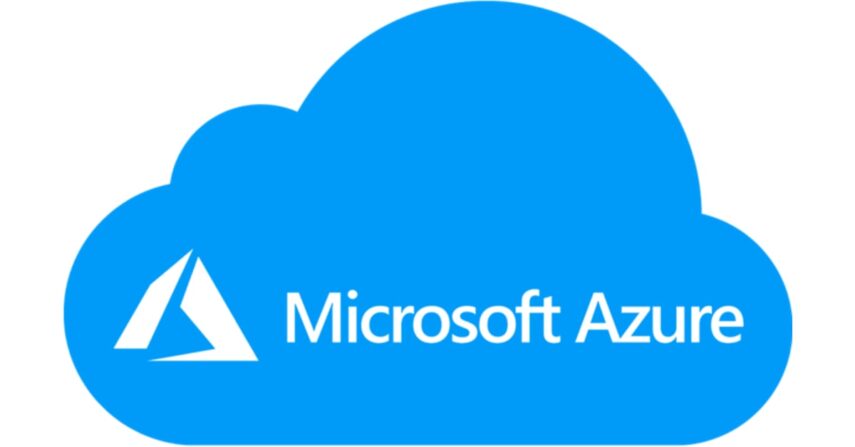Businesses worldwide are increasingly digitizing their efforts through the cloud computing solutions that Microsoft Azure provides, and it isn’t hard to see why. After all, they have redefined how companies operate, thanks to their more secure and scalable enterprise applications. Because of this, over ninety percent of the Fortune 500 enterprises of today are utilizing Azure to propel their organizations forward.
With its deeply-integrated cloud services, businesses can build, manage, and deploy complex and straightforward applications quickly and easily through Azure. It also supports a range of operating systems, devices, databases, frameworks, and programming languages, enabling enterprises to leverage all the technologies and tools they trust correctly.
With that in mind, we’ll talk about what Microsoft Azure cloud is primarily used for and what makes for a reliable provider you should choose for your business.
The primary use for Microsoft Azure

Microsoft Azure boasts over 200 applications, providing more than a thousand technical functions and capabilities. And most of them are designed for serving business operations via the cloud or the World Wide Web. For example, organizations can instead offload the resources to the platform instead of having to store and manage processes and data within on-site servers and computers. However, it offers more than storage capabilities.
Here are some of the most popular ways in which Microsoft Azure aids companies:
- Platforms-as-a-Service, or PaaS, includes the testing and development of software applications.
- Software-as-a-Service, or SaaS, involves access to applications like Microsoft Office or Salesforce CRM through the World Wide Web.
- Infrastructure-as-a-Service, or IaaS, is the location on the virtual machine where the data is typically processed.
Also, since Microsoft Azure depends on an open source type of computing, developers and programmers can use existing codes in various languages. Enterprises of all sizes can utilize only cloud-based applications and solutions that align with their respective business models. As a result, they just pay for the services they use. This means that it’s not only an excellent option for those looking to offload their entire operations on the cloud but a suitable one for organizations that need to keep some computing processes and storage on-site, referred to as hybrid cloud mode.
Characteristics of a reliable cloud-based service provider

From financial and healthcare solutions to retail services, organizations in many sectors rely on the capabilities of Microsoft Azure to enhance their operations, save costs on infrastructure, and increase market share. With that said, here are a few things to look out for when seeking the services of a reliable provider of these cloud-based services.
-
It boasts PaaS and IaaS capabilities.
Microsoft Azure boasts a unique combination of PaaS and IaaS services. Through their infrastructure-as-a-service capabilities, organizations can have their infrastructure needs outsourced and only for the things they use. On the other hand, the platform-as-a-service they offer enables companies to build their custom applications and solutions without the need to purchase and maintain the necessary groundwork.
-
Enhanced security offerings
Security developmental life cycles is a security-leading process wherein Azure is designed. As it comprises security at its core, private services and data remain secure and safe on the cloud platform. In addition, Microsoft Azure provides excellent compliance coverage in over fifty offerings, making it one of the most trusted platforms even by government institutions. For this reason, many organizations continue to use an Azure database migration service by CSW Solutions to get their data on the Microsoft platform and keep it secure.
In addition, it was also the first to start embracing the new standard in cloud privacy, the ISO 27018. With this, Microsoft guarantees only the best regarding operational safety and data hosted on the Azure cloud platform. Not only does this ease worries and give peace of mind that their cloud computing operations are secure. But it also prevents potential problems that can arise as a result of a compromised system.
-
Ductility and scalability
Through Azure, it’s possible to run and scale applications without the need for any additional coding work. It also offers secure, safe, performance-efficient, and ductile storage solutions on the cloud. With it, changing settings and using more processors becomes much easier. As a result, companies do not have to spend too much time or resources on getting things done.
-
Interoperability
It’s possible to develop amalgamated applications for on-site applications like cloud databases using Azure. Azure also aids open standards and Internet protocols, such as HTTP, REST, SOAP, and XML. Software development kits for PHP, Ruby, and Java are also available for specific applications created in Azure tools and languages for Eclipse.
Reasons to utilize Microsoft Azure

Entrepreneurs all have options for cloud computing services, but what sets Microsoft Azure apart from alternatives is that its features are generally more cost-effective. As a result, it has been a dominant force on the market when it comes to enterprise-level solutions and servicing mega corporations and global brands. In addition, those already utilizing Microsoft’s tools will also find migration more straightforward. However, it’s worth noting that it isn’t a plug-and-play solution.
- Educational resources. With a multitude of different solutions to try out and the developmental responsibility left to users, making the transition into any new service isn’t a small affair. In reality, it’s a considerable commitment. Therefore, it’s recommended that potential or new Azure users use the educational resources by Microsoft to become more intimately familiar with its advantages before investing time and money towards it.
- Robust support. For those lacking resources to take on this undertaking alone, Microsoft’s Azure provides support features that come with comprehensive DevOps menus to aid in creating, testing, launching, and analyzing everything that’s built. Even when buying all these extras, you can still lower costs by creating your processes internally.
Conclusion
It is no surprise that Microsoft Azure remains the preferred cloud computing service amongst businesses of all sizes and industries. Beyond its features, capabilities, and scalability, it’s also a more cost-efficient approach to digitization. Additionally, it can be integrated with many other Microsoft products, making it easier to implement and use.







